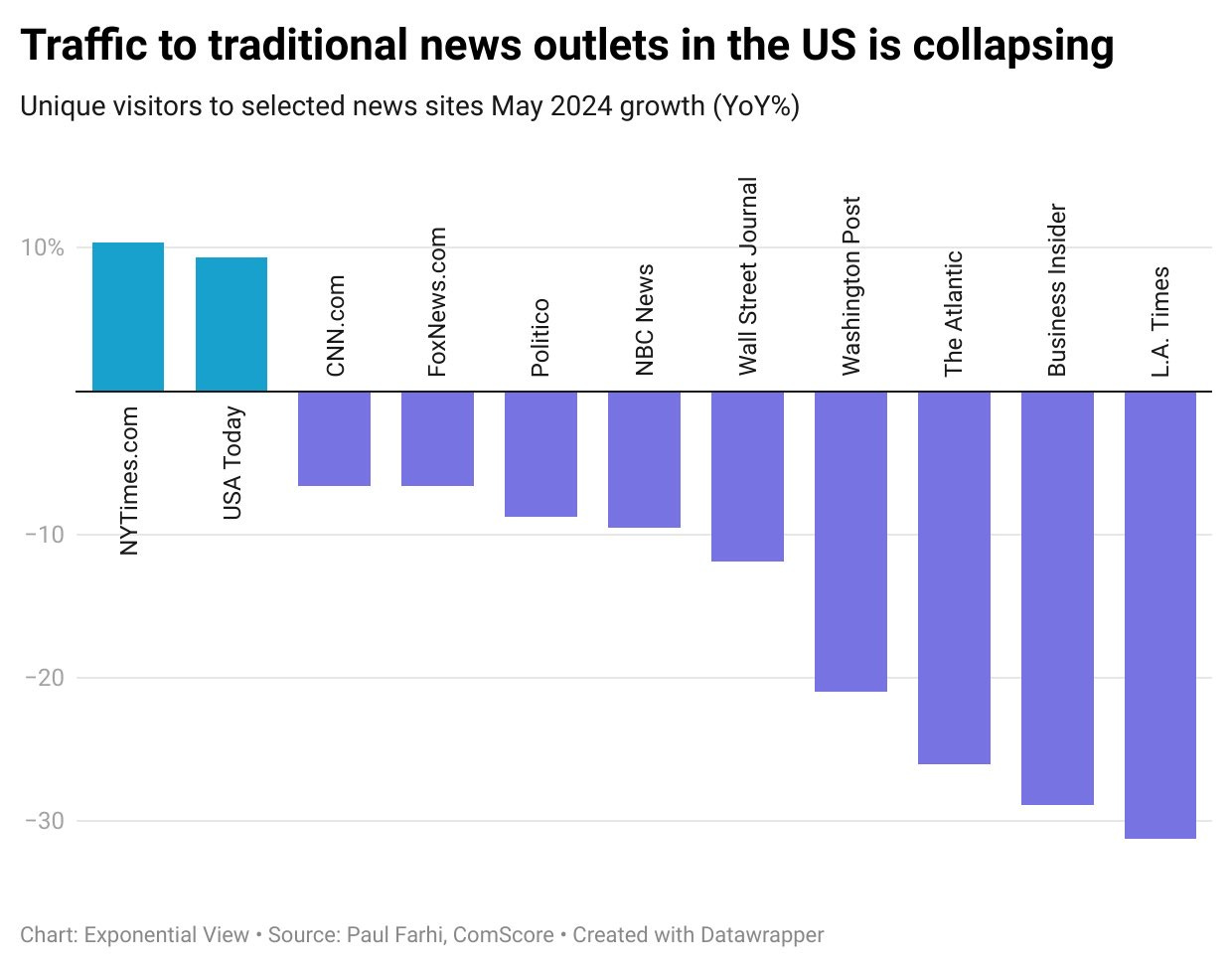Why persistence rules
by Adam Singer. You don't have to be the fastest, you just have to not give up
Adam Singer has done it again! He’s becoming almost a regular contributor here at The BoldBrush Letter. The following article was written by Adam Singer, the man and the mind behind the publication Hot Takes.
Hot Takes is spicy, useful, occasionally snarky takes (~1-2x/week at most) from Adam Singer on marketing, tech, investing, creativity and more. We, at BoldBrush, have found Adam’s thoughts about marketing insightful, refreshing, contrarian and aligned with our own philosophy of valuing real long-term human relationships over cheap engagement.
We urge you to subscribe to his insight packed newsletter, which has great value for artists and creatives by clicking the button below:
This article originally appeared on the Hot Takes here. I’m sharing it with The BoldBrush Letter because in it, Adam has explored an important topic for creative people. Persistence is one of the most important qualities of an art business and most people give up on most endeavors too soon. For example, I once followed up with a client regularly for THREE years before he bought his first painting. How much do you follow up? How long do you stick with posting regularly? How long do you give an online service before “moving on”, when the real issue is not being persistent enough?
Editor’s Note: In two days, this post will be locked and is available only to paid members because we don’t want this duplicate content on the open web in a way that might draw traffic away from Adam’s original post. If you are not a BoldBrush paid subscriber, you can still read the entire post here.
Why persistence rules
Hiking with my Australian Cattle dog Dash in Arizona, he is persistent and pushes me to stay fit.
There is one commonality among every successful publisher, influential person, artist or business (that wasn’t nepotistically chosen or gifted with financial blessings): persistence. It’s so simple, yet so effective.
In networks, we find self-reinforcing virtuous circles. Each additional member increases the network’s value, which in turn attracts more members, initiating a spiral of benefits.
–Kevin Kelly
What Kevin is describing here is essentially a feedback loop. Building one into your work is vital to see results take off beyond the scope of simple arithmetic growth. One of the most effective strategies to build the feedback loop from scratch is to be persistent, perhaps the only path for most, the world just isn’t forgiving enough for it to be another way.
Persistence is devastatingly effective for publishers
People become addicted to where they get their information (this doesn’t have to be a bad thing). Some creators are persistent enough to meet the demands of an audience thirsty for more, and over time that audience essentially grows itself. This is of course only effective if someone’s ongoing thesis is interesting enough to spread. But the formula is simple: ideas that spread + persistently creating them = success. Everything else you do is going to help contribute, but really those two elements are core to winning (tools, tactics, hacks and platforms not only bore me more than focusing on this, they just don’t matter that much in comparison).
Noah who is a prolific writer is an illustrative example below. This is all due to his persistence.
Persistence is the cornerstone of building a digital reputation
Reputation isn’t the result of a piece of publicity garnered here and there randomly over the course of time by chasing traditional media coverage (and it’s continually less meaningful to be blessed by the subprime attention outlets). It doesn’t work quite like that in the modern world, at least not how it did in the past.
A more effective strategy is to get others to come to you. It’s effective because it scales and is self-reinforcing, creating that all important feedback loop. The only way to become sought-after by bloggers, customers, subscribers is to be persistent in providing external value to the world around you.
Most give up long before pushing through ‘the dip’
Seth Godin popularized the phrase the dip what feels like a lifetime ago in 2007 in a short book of the same title. I recommend it if you’ve never read. Essentially the dip is a temporary setback that can be overcome with persistence. An epiphany hit me when I read that book in one sit in the bookstore (sorry Seth, I own most of your others): pushing through the dip itself is actually the most satisfying part of all. Persistence is key, make it a core value and I bet you can summon the will to power to push through most things.
It requires persistence to become an outlier
The dip is a similar idea to the thesis of Malcolm Gladwell’s book, Outliers, which (simplified) claims the key to success in any field is to a large extent a matter of practicing a specific task 10,000 hours or more – essentially persistence. There’s debate on if this number is precise and on Gladwell himself but I don’t think it matters, the point remains unless you are struck by a form of luck lightning you aren’t going to magically get anywhere without persistent effort.
Create processes which enable the amplification of persistent creativity
Persistence for the sake of efficiency in repetitive tasks anyone can do just isn’t valuable. You can either outsource those tasks or automate them (and if you can’t automate now, you’ll be able to sooner rather than later). But if you create the right kind of processes which by design enable the amplification of creativity you’ll be able to create output (of any variety: art, business, you name it) light years ahead of others who spend time on things that don’t compound or simply use AI nihilistically.
Achieving persistence takes mental toughness, passion for what you’re doing and sacrifice in many aspects. But during a time where most look for the easy way out, the quick fix, the short-term band aid, the reliance on being algorithmically or politically chosen, it’s an exceedingly effective play. You probably don’t need more guides, gurus or courses, you just need to consistently ‘show up’ in a way that matters and transcends any short-term trends. Fast success and attention fade equally quickly. Instead, proceed steady and methodical.
FASO Loves John Cosby’s oil paintings!
See More of John Cosby’s art by clicking here.
Wouldn’t You Love to work with a website hosting company that actually promotes their artists?
As you can see, at FASO, we actually do, and,
we are the only website host we know of that does.
Click the button below to start working
with an art website host that actually cares about art.





